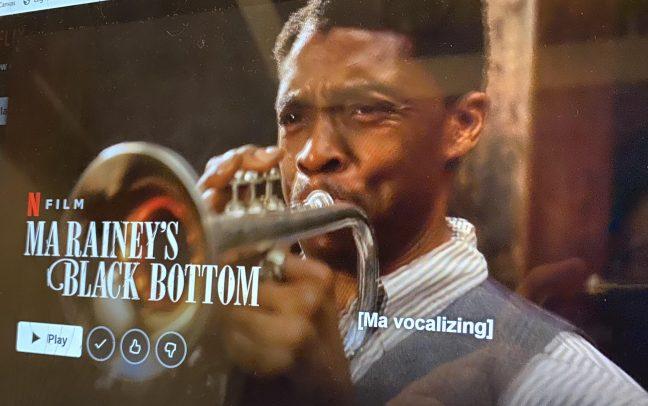Produced by Denzel Washington and directed by George C. Wolfe, “Ma Rainey’s Black Bottom” is a big-screen adaptation of August Wilson’s play of the same title.
Set in Chicago during the Roaring Twenties, a decade of prosperity and the blues, the film follows legendary singer Ma Rainey (Viola Davis) and her traveling band, including ambitious, young trumpet player Levee (Chadwick Boseman) over the course of an afternoon recording session.
In essence, “Ma Rainey’s Black Bottom” is a character study of two musicians similar in passion yet differing in approach. Ma Rainey, a monumental force in the music industry and the Black community, is seen as an inexorable, authoritative voice. Through her distinct style, she’s garnered incredible success for herself as well as being deemed “The Mother of the Blues.”
Review of opened movie theaters with Christopher Nolan’s ‘Tenet’
What stands out most about the character of Ma Rainey is the complete understanding of her own self-worth — and she leverages it every chance she gets. Because she’s grown up in an industry pitted against Black people, Ma Rainey uses every opportunity to make life miserable for the white owners of the recording studio. After all, as she alludes to, they just want her voice, and once they have it, she becomes just another face.
As expected, Davis does a wonderful job in this film portraying the lesser-known music icon. On the other hand, Levee is an innocent, feverish and trendy trumpeter hard-set on taking the blues world by storm with his modern, upbeat style of music.
Levee is an incredibly open character, voicing his big plans to his older bandmates who simply laugh and sometimes outright dismiss the boy’s blind ambition.
A lot is revealed about Levee throughout the film’s rather concise 94-minute runtime. One quickly views him as the protagonist in the story, representing a new age of Black musicians full of promise, waiting to be squashed by the tyranny of racial discrimination.
UW Black History Month honored by student planning committee
In his final role, the late and great Boseman gives a career-defining performance. The script hands him a part containing such a drastic character arc with long, dramatic monologues, which can be incredibly difficult to pull off — but wow does he do it. Boseman’s every move and every line demand the camera as he effortlessly brings to life a talented trumpeter who refuses to accept the misfortune of time and place.
The movie functions as a chamber piece — filmed in limited locations and set over a small period of time — which is common with play adaptations. While I think the camerawork is a sizable achievement given the set’s limited atmosphere, there are times when its origin as a play becomes too apparent.
During certain scenes, the banter between the band members seems overly snappy and rehearsed which leads it to feel unnatural. The soulful vocals and histrionic monologues seem like they belong on a grand stage instead of confined to a few rooms.
I tend not to compare movies, but I find it really difficult to ignore analyzing this film side-by-side with “One Night in Miami,” a fellow Best Picture contender and play adaptation founded on its dialogue and performances. After viewing both, I think “One Night in Miami” does a much better job of getting away from the original play — something all adaptations should strive for.
Thematically, I think the film illustrates not only the race relationships of the time, but also the disparities between the innocent youth — full of ambition — and the hardened veterans who have come to accept their reality.
In the 1920s, African Americans were subjugated and discriminated against in virtually every sector. “Ma Rainey’s Black Bottom” excellently depicts the plights of Black musicians during this era.
A lot of symbolism, most notably Levee’s shoes, is employed to establish deep thematic messaging. Through Boseman’s character, the audience gets an idea of how it felt to be a Black musician trying to make a name for oneself in an industry that is only fighting back.
Grade: 8.5/10
Afterthought: The world was taken back by the news of Boseman’s passing last August, resulting from a lengthy and secret battle with colon cancer. Many big names in Hollywood had nothing but praise for Boseman whose infectious smile was known to light up rooms and movie screens alike.
While he’ll go down as the one and only Black Panther, revolutionizing the role of minorities within the superhero genre, Boseman’s critically acclaimed performances in film such as 42, Marshall and Da 5 Bloods showcase his unique skills in front of the camera.
His work in “Ma Rainey’s Black Bottom” might be his best, and he is my overwhelming favorite to take home Best Actor at this year’s Academy Awards, capping off his legacy in style.
As a lifelong cinephile, knowing I won’t see his familiar face in new releases anymore is tough to wrap my head around, but my appreciation for his great work as both an actor and a man knows no bound. He will be missed.








